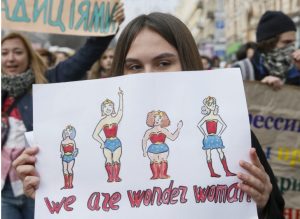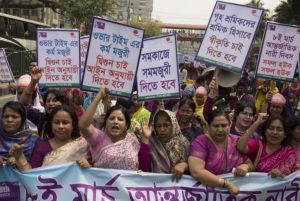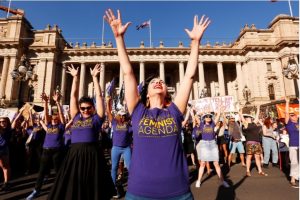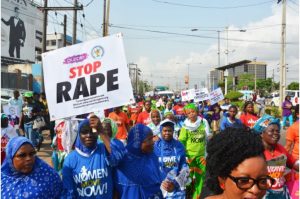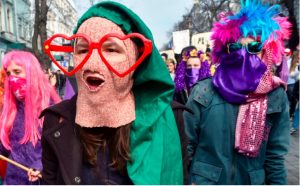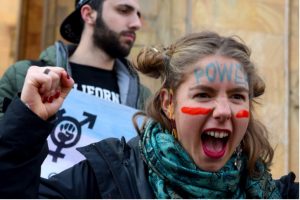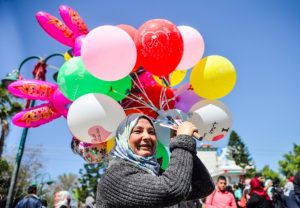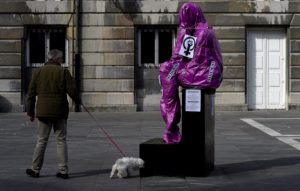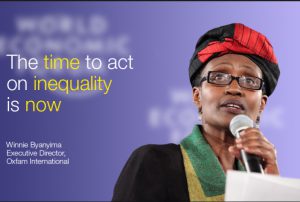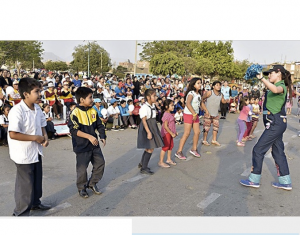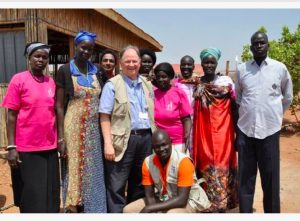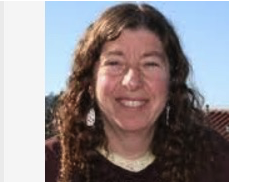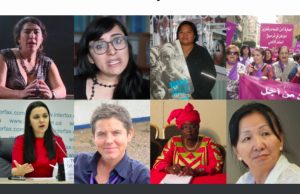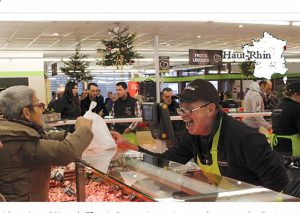…. HUMAN RIGHTS ….
An article by Shiromi Pinto for Amnesty International
People across the world are joining today’s Women’s Strike, demonstrating the consequences of A Day Without A Woman. Can we afford a day without women like these eight, whose refusal to wait is the key to reversing an increasingly regressive trend for women’s rights?
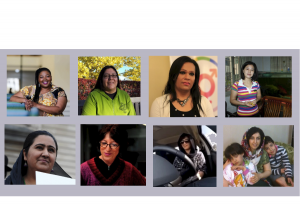
Photos of the 8 women described below in order upper left to lower right
(click on photo to enlarge)
If there’s one thing we’ve learned from January’s historic Women’s March, it’s that women are fed up of waiting. Today, that fervour hits the streets again in what looks set to be a historic women’s strike. Back at the beginning of 2017, more than 3 million people – of all genders – marched worldwide for women’s rights, and many intersecting rights besides. Those motivations remain true today – spurred by US President Donald Trump’s misogynistic remarks, discriminatory travel ban and directives that have far reaching and profoundly negative implications for migrants and other minorities. His policies also specifically put women’s health and lives at risk. But this is not unique to the USA, as demonstrated by the thousands of women worldwide who are striking today. They know that when it comes to the inequalities that still afflict so many women around the world, the statistics are undeniable.
The World Economic forum predicts it will take another 169 years for the gender pay gap to close. This is just one of many shocking figures showing how long we might have to wait before women and girls can achieve equality. Across the globe, some 225 million women are unable to choose whether or when to have children. Each year, about 47,000 women die, and another 5 million are disabled, as a result of unsafe abortions. An estimated 35% of women worldwide experience physical or sexual violence. More than 32 million girls around the world – compared with about 29 million boys – are not in primary school. And 700 million women alive today were married before they were 18 years old.
With so much left to be gained, women and girls around the world are saying enough is enough. Here are eight women who are battling on the frontline to claim their rights, refusing to wait in the face of injustice.
They won’t wait and neither will we.
How about you?
AFRICA
Dr Tlaleng Mofokeng – She won’t wait… while women are still denied abortions
A medical doctor in South Africa, Tlaleng is a force to be reckoned with. Not only is she a committed medical professional, but she also fearlessly advocates for sexual health as a radio presenter, spreading her message far and wide. “I won’t stop until the right of women to have an abortion is respected and provided for safely,” she says. “In South Africa, women die every year due to unsafe abortions, yet politicians think they can use women’s reproductive rights as a political ping pong ball.” Tlaleng is also challenging rape culture, and championing the drive to get health practitioners to treat patients with respect and without discrimination – a true human rights defender, like all the women featured here.
“The whole world thinks they have a right to tell women what to do with our vaginas and our uteruses. Women’s health seems to be a free-for-all for everyone to have an opinion on”.
AMERICAS
Connie Greyeyes – She won’t wait… for another sister to be stolen
Connie Greyeyes is an “accidental” activist. An Indigenous Cree woman living in the province of British Columbia in Western Canada, she realized that a shocking number of Indigenous women in her community had gone missing or had been murdered. She began organizing to support the families of these women and took the demand for a national inquiry to the Canadian capital in Ottawa. According to official figures, more than 1,000 Indigenous women have gone missing or been murdered in Canada in the last three decades. The efforts of Connie and many other Indigenous women across Canada have borne fruit, with the Canadian government finally announcing an inquiry in 2016.
“When we’re together, there’s so much strength. Being able to smile even after finding out that your loved one was murdered. How can you not be inspired by women who have been to hell and back over their children? You know, fighting, trying to find justice. How can you not be inspired and want to continue fighting?”
Karla Avelar – She won’t wait… while refugees are denied safety
Karla Avelar is a survivor. She’s made it through gang attacks, murder attempts and prison in El Salvador. Today, she heads Comcavis Trans, which supports Lesbian, Gay, Bisexual, Transgender and Intersex (LGBTI) people, all of whom face threats and violence in El Salvador. Their situation is so tenuous in the country that many flee as refugees. Through Comcavis, Karla provides information and other support to help them on what is often a treacherous journey that normally takes them to the USA or Mexico. But the US’s hardline stance on refugees and migrants entering the country has thrown these LGBTI refugees into even greater jeopardy – something Karla is now tackling with energetic defiance.
“The decisions Trump is making are affecting thousands of people, particularly LGBTI people who are victims of racism, discrimination and attacks. Instead of guaranteeing the human rights of migrant people, the government of the USA is stigmatizing and criminalizing them.”
(continued in right column)
(Click here for a Spanish version of this article or here for a French version)
Question for this article
Do women have a special role to play in the peace movement?
(continued from left column)
ASIA-PACIFIC
Su Changlan – She won’t wait … to reunite another child bride with her parents
Former school teacher Su Changlan’s story is not unique. One of her closest friends says that hers is the story of many women in China. She couldn’t stand by when she heard about girls trafficked as brides or parents whose children had gone missing. She did her best to help them and many others, her activism extending to land rights issues and support for pro-democracy protests in Hong Kong. She did all this knowing that she might have to sacrifice her freedom in the process. Sadly, this is just what happened. She has been detained by the authorities since 2015.
“I hope that parents do not despair about searching for their missing children. We, civil society, should work together to help them reunite with their children. The government should also invest more in these efforts instead of hindering our work!”
Samira Hamidi – She won’t wait… while women are excluded from government
Since 2004, Samira Hamidi has been blazing a trail for women in Afghanistan. As Chairperson of the Afghan Women’s Network (AWN) she has actively tried to ensure that women’s voices and concerns are represented at the highest levels of government. At the same time, she is a staunch advocate in the international arena, reminding governments and potential aid donors that promoting and securing women’s rights in Afghanistan must be part of any conversation they may have with the country’s leaders. She faces a steep road, but she remains undaunted, championing other women human rights defenders, ensuring that their concerns are amplified.
“Women should be given an equal opportunity to make a better Afghanistan.”
EUROPE
Jeanette John Solstad Remø – She won’t wait… for the right to be recognized as a woman
Until recently, she was John Jeanette, her name signifying the dual identity she was forced to accept every day in Norway. Although this former submarine commander felt her future could only be female, Norwegian law did not allow her to change her legal gender without undergoing a compulsory “real sex conversion”. This would have involved having her reproductive organs removed, as well as a psychiatric diagnosis. She refused to put herself through any of this. As a result, her driving license, passport, medical prescriptions, even her library card, still referred to her as male. She campaigned hard against Norway’s abusive law and her actions, alongside those of her supporters – including Amnesty – scored a huge victory. In 2016, Norway finally adopted a new law on legal gender recognition, which allows transgender people to choose their gender. Today, in acknowledgement of this milestone, she has changed her name to Jeanette John.
“Everyone deserves the right to express their gender.”
MIDDLE EAST AND NORTH AFRICA
Loujain al-Hathloul – She won’t wait… for the right to drive a car
Fearless and formidable, Loujain defied Saudi Arabia’s driving ban and faced the consequences. In November 2014, she was detained for 73 days for live-tweeting herself driving into Saudi Arabia from the United Arab Emirates. Released in February 2015, she went on to stand for election in November that year – the first time women were allowed to both vote and stand in elections in the state. However, despite finally being recognized as a candidate, her name was never added to the ballot. Today, she continues her fight to create a better future for her fellow Saudis – one where women enjoy their rights as full citizens of their nation.
“I will win. Not immediately, but definitely.”
Narges Mohammadi – She won’t wait… for another woman to be disfigured in an acid attack
A passionate advocate for women’s rights in Iran, Narges actively protested against acid attacks on women. This was just one of many efforts she has made to defend human rights, including calling for the abolition of the death penalty. She has paid dearly for her work and is now serving a total of 22 years’ imprisonment for daring to speak out. The “evidence” used against her at trial included her meeting with the European Union’s former High Representative for Foreign Affairs and Security Policy on International Women’s Day 2014. “In a land where being a woman, being a mother and being a human rights defender is difficult on their own, being all three is an unforgivable crime,” she recently wrote from prison. In 2016, Narges went on hunger strike because she was refused telephone calls with her two young children, who now live in France with their father. Today her children can speak to her once a week, but face the prospect of living without their mother for many years to come.
“I am, in my own homeland, convicted and imprisoned for the crime of being a human rights defender, a feminist and an opponent of the death penalty. [But] not only have my imprisonment and my recent 16-year sentence not made me feel any regret, they have actually strengthened my convictions and commitment to defending human rights more than ever before.”
(Thank you to Janet Hudgins, the CPNN reporter for this article.)
